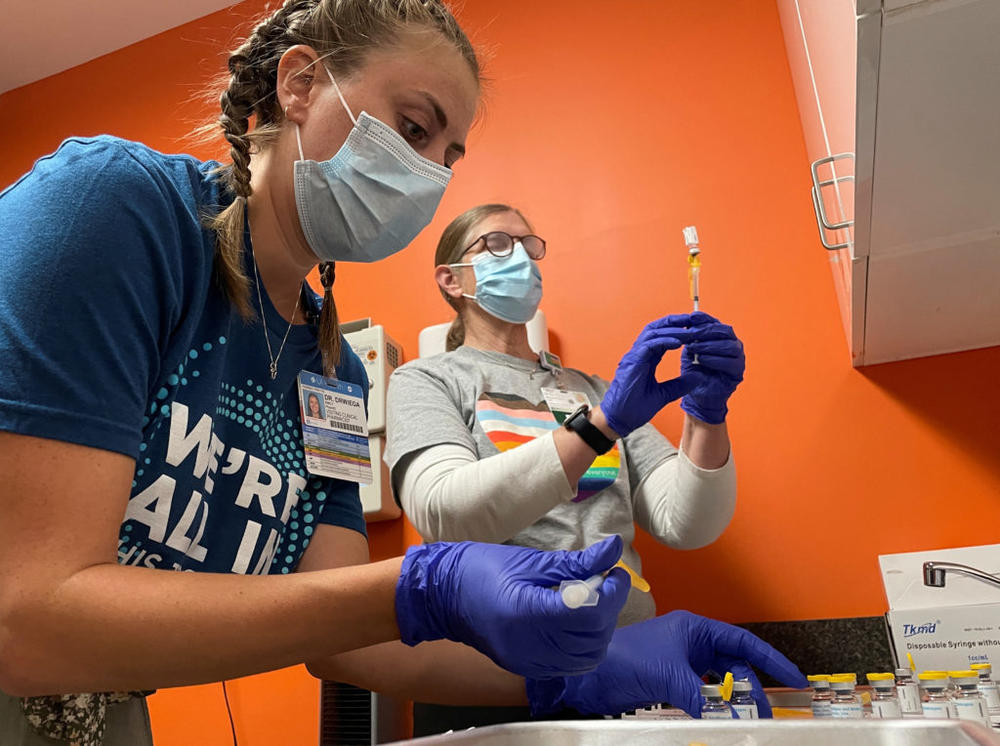
Caption
Dr. Emily Drwiega from the University of Illinois Health and Maggie Butler, a registered nurse, prepare monkeypox vaccines at the Test Positive Aware Network nonprofit clinic in Chicago, Illinois, U.S., July 25, 2022.
Credit: REUTERS/Eric Cox



